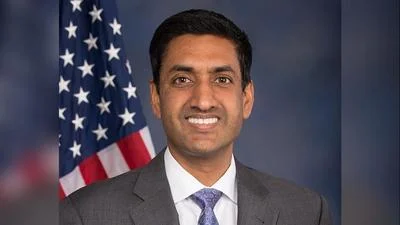John Taylor, Professor of Economics at Stanford University and developer of the "Taylor Rule" for setting interest rates | Stanford University
John Taylor, Professor of Economics at Stanford University and developer of the "Taylor Rule" for setting interest rates | Stanford University
Three student-adviser pairs from Stanford University have been selected for the 2024 Gilliam Fellowship cohort, an initiative that emphasizes inclusion in science and the importance of strong mentor-mentee relationships. The fellowships, granted by the Howard Hughes Medical Institute, recognize doctoral students in biomedical and life sciences along with their faculty advisers for notable research contributions and dedication to promoting equity and inclusion.
Each fellowship provides $53,000 annually for up to three years. It also includes mentorship training for faculty members and funding for community engagement projects. This year's recipients from Stanford are María H. T. Nguyễn in biology with adviser Florentine Rutaganira; Azalia Martínez Jaimes in developmental biology with adviser Kristy Red-Horse; and Adonis Rubio in immunology with adviser Christopher O. Barnes.
Stacey F. Bent, vice provost for graduate education and postdoctoral affairs at Stanford, expressed satisfaction over the recognition: “I’m so happy to see these three accomplished pairs honored with this prestigious award,” she said. She emphasized that it aligns with Stanford's values of fostering diversity, equity, and inclusion through effective mentoring.
Christopher O. Barnes noted the rarity of having three pairs from one institution receiving this fellowship: “It points to Stanford’s academic and research excellence,” he remarked.
Recipients appreciate the fellowship's focus on community aspects as well as its emphasis on equity and inclusion. Adonis Rubio highlighted his motivation: “What drew me is this community: being surrounded by other like-minded individuals... primarily people of color.”
Nguyễn added insights into her work environment concerns: “A lot of effort has been put into recruitment... but a lot less emphasis has been put into retention... ensuring that [the] environment is inclusive, equitable, and diverse.”
The fellows' advisers will also participate in a year-long course on mentoring skills. Florentine Rutaganira mentioned the benefit of creating faculty networks through this program.
Kristy Red-Horse stressed the importance of robust adviser-advisee relationships for marginalized communities: “Having a community dealing with similar issues helps us all do a better job.”
Stanford’s fellows praised their advisers’ commitment to open communication even before receiving the fellowship. Azalia Martínez Jaimes pointed out how discussions about conflict resolution were part of their application process.
Rubio shared why he chose Barnes as his adviser: “I could see myself thriving in his lab... I stayed because of his mentorship style.”
A unique feature of the Gilliam Fellowship is funding for community engagement projects such as outreach to local schools or developing inclusive curricula at Stanford's Graduate School of Education.
Barnes appreciated this aspect: “It provides a way to help support people who are actively trying to make spaces of belonging and inclusion on their campuses,” he stated.




 Alerts Sign-up
Alerts Sign-up